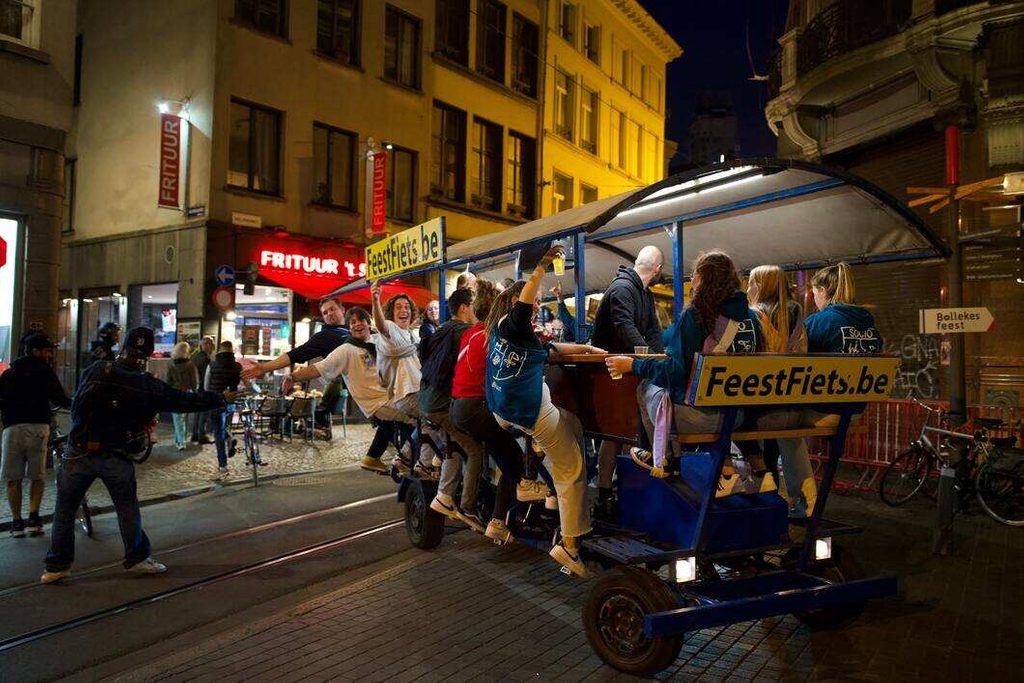The city of Ghent in Belgium, known for its historical attractions and serene atmosphere, is facing a problem with beer-bikes, large pedal-powered vehicles that allow up to 20 people to drink large quantities of beer while listening to loud music.
Often the transport of choice for stag parties, the inappropriate behaviour and noise caused by the vehicles and their clients has led Ghent city council to consider a ban on stag groups, usually young men on a party weekend celebrating the upcoming marriage of a friend. The authorities say the loud music and excessive alcohol consumption – often in excess of 50 litres of beer – are in violation of road rules and pose a nuisance to bystanders.
Bram Van Braeckevelt, the city's tourism councillor, acknowledged in an interview with Het Nieuwsblad the growing number of complaints and said that the added value of beer-bikes for Ghent is limited. The city is considering additional measures to address the issue, including a possible ban, although the legality of such a ban is yet to be determined.
Not only in Ghent
Mattias Vandewaetere, from the bicycle hire company Beer-Cycle, expressed concern article about the negative impact caused by a minority of drinkers who engage in loutish behaviour. He emphasised that these individuals do not reflect the majority of customers who adhere to the guidelines provided before their departure around a city on a beer bike.
The problem of rowdy behaviour associated with stag parties and beer bikes is not limited to Ghent alone. Other European cities such as Amsterdam, Antwerp, Leuven, and Brussels have also faced similar challenges. Amsterdam – where the beer-bike phenomenon first landed – has already banned them and launched an online advertising campaign in March to deter rowdy stag parties. Other cities are considering implementing similar restrictions.
Related News
Beer-bikes were invented in 1996 by two Dutch brothers who saw them as a way to participate in the procession for Queen's Day. The concept gained popularity and the brothers turned it into a business, producing hundreds of mobile cafes. But the inventors themselves acknowledge the need to reconsider their use in busy tourist cities and express a preference for quieter rural areas where the experience is more enjoyable for all parties involved.
Overall, the potential ban on beer bikes in Ghent and other Belgian cities is seen as positive news for tourists, residents, and landlords alike, as it aims to address the issues caused by unruly behaviour. The challenge now lies in convincing the bachelor parties and their friends to embrace alternative (less annoying) ways of celebrating.

